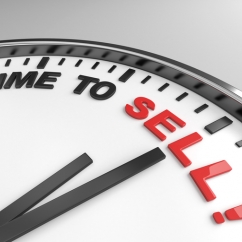Sales Strategy
Suggestive Selling Tips to Increase Sales and Customer Loyalty January 07, 2025 (0 comments)

Victoria, Australia--Suggestive selling, also known as upselling, involves recommending additional or complementary products to enhance a customer’s purchase. For instance, a barista suggesting a pastry with coffee or a cashier recommending batteries for a gadget. An article by POSApt notes that if done well, this strategy increases sales and creates a better shopping experience for customers.
[Image via istockphoto.com]
When executed thoughtfully, suggestive selling benefits both parties. Customers receive personalized service and discover useful items they might have overlooked, while businesses enjoy increased revenue and improved customer loyalty.
Why Suggestive Selling Works
The article states that suggestive selling is effective because it aligns business goals with customer needs. Thoughtful recommendations improve the shopping experience by making it easier for customers to find what they need—or didn’t realize they needed. It’s a practical approach that:
- Boosts Average Sales: Encourages customers to spend more per transaction.
- Enhances Customer Loyalty: Builds trust through personalized, helpful suggestions.
- Improves Inventory Turnover: Moves slower-selling items by pairing them with popular products.
Strategies for Effective Suggestive Selling
Master Product Knowledge: Equip your team with in-depth product insights. Employees who know the features and benefits of items can confidently recommend complementary products. For instance, staff in an electronics store should suggest essentials like screen protectors or cases for a new smartphone purchase.
Personalize Recommendations: Customers appreciate suggestions tailored to their preferences. Train employees to ask open-ended questions and listen carefully to uncover customer needs. In a clothing store, a salesperson could recommend matching shoes or accessories for a dress the customer is purchasing for an event.
Leverage Visual Merchandising: Creative product displays can inspire customers to buy related items. The article gives the example of placing salsa and guacamole next to tortilla chips in a grocery store, subtly encouraging customers to grab all three for a party snack.
Use Data and Technology: Modern POS systems can analyze purchase history to guide recommendations. For instance, a bookstore might suggest a new mystery novel to a customer who often buys books in that genre.
Offer Incentives: Discounts or loyalty points can encourage customers to try new items. A beauty store might offer 10% off a related product when a customer purchases a skincare item.
Real-World Examples
- Starbucks: Baristas frequently suggest food pairings with drinks, while personalized app promotions boost sales.
- Amazon: Features like “Frequently Bought Together” effectively recommend related products, increasing order values.
- Apple: Employees suggest complementary products like chargers and warranties to enhance customer convenience and boost revenue.
Avoid Common Pitfalls
- Being Pushy: Overly aggressive tactics can alienate customers. Keep suggestions friendly and natural.
- Irrelevant Recommendations: Suggest only items that genuinely complement the purchase.
- Ignoring Customer Signals: Pay attention to verbal and non-verbal cues to ensure suggestions are welcome.
Learn more in the entire article on POSApt.






